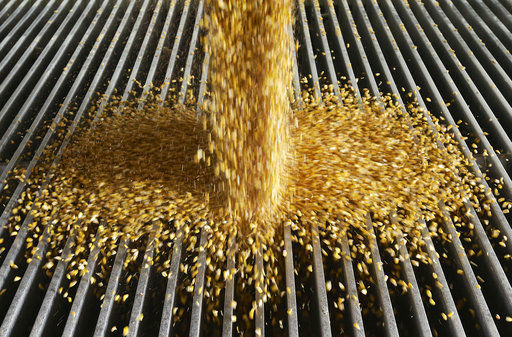Trump Should Keep Ethanol Promise

The writer is the executive director of Renewable Fuels Nebraska, the trade association representing the ethanol producers and industry partners in Nebraska.
While many ethanol industry leaders have gathered this week in La Vista for the Emerging Issues Forum, what is unfortunately emerging is major concern over inexplicable actions by the Environmental Protection Agency that are diminishing ethanol demand from the inside out. At a time of depressed commodity prices and a poor farm economy, many are left to wonder whether or not President Donald Trump will keep his promise to support ethanol and rural America.
Since the Renewable Fuels Standard was overwhelmingly supported as part of the Energy Policy Act of 2005, the U.S. biofuels industry has grown tremendously, becoming intricately woven into the fabric of the U.S. farm economy. The 25 ethanol plants that dot Nebraska’s landscape rank second in the nation in production, with over 2.2 billion gallons of annual capacity, providing over $4 billion in annual impact to Nebraska’s economy. Nationally, the 15.25 billion-gallon U.S. ethanol industry supports 74,420 direct jobs, $42 billion in economic impact, $23 billion in household income and $9 billion in tax revenue.
A strong ethanol industry is vital to the stability of rural economies like Nebraska’s. So, when Trump stated during the 2016 election that he would protect the RFS, many Nebraskans believed him. That is why it’s all the more perplexing to understand the recent actions to the contrary by EPA Administrator Scott Pruitt.
Without any public transparency, it has been reported that the EPA has issued approximately 25 small refinery RFS “hardship” waivers, some going to one of the largest refining companies in the country — Andeavor, which posted $1.5 billion in annual profits last year. It is estimated the granting of these waivers by the EPA has resulted in destroying demand for up to 1.5 billion gallons of U.S. ethanol and up to 500 million bushels of U.S. corn.
The EPA waivers alone could lower corn prices by as much as 75 cents per bushel. That’s a potential impact of over a $1 billion, just to Nebraska’s corn farmers. Imagine the ripple effect that will have throughout the already depressed Nebraska farm economy and many towns in the state.
The end result of these waivers, along with Pruitt’s reluctance to grant approval of the year-around sale of E15 blends, will be less ethanol being utilized in the marketplace, higher emissions and higher prices for American consumers to pay at the pump.
Couple these unsupportable EPA actions with China’s retaliatory announcement to raise tariffs on U.S. ethanol imports to an astronomical 45 percent, and it’s not hard to see why those involved in the ethanol industry and agriculture as a whole are anxiously waiting to see if this administration will level the playing field and make this right for ethanol and agriculture.
We need the president to keep his promise to America’s farmers and the ethanol industry. Rather than delaying any decision on the RFS, the president needs to direct the EPA and Pruitt to end the unnecessary roadblocks preventing E15 blends from being sold year-around across this country. This would go a long way in keeping Trump’s promise to increase the use of higher blends of ethanol while helping to stabilize the rural farm economy. The president also needs to immediately prohibit the granting of any more unwarranted, demand-destroying RFS “hardship” waivers by the EPA or any other schemes to waive, cap or reduce the RFS, period.
By reining in the EPA and expanding opportunities for E15, President Trump will be helping to keep his own promise to support the ethanol industry, while restoring some trust and hope in the farmers here in Nebraska and across America — at a time when it is needed most.
Back to News
